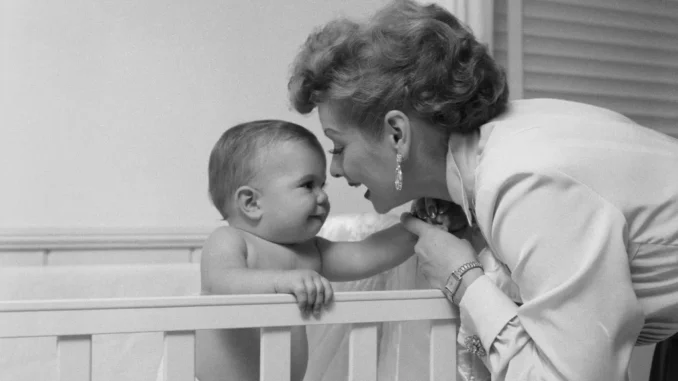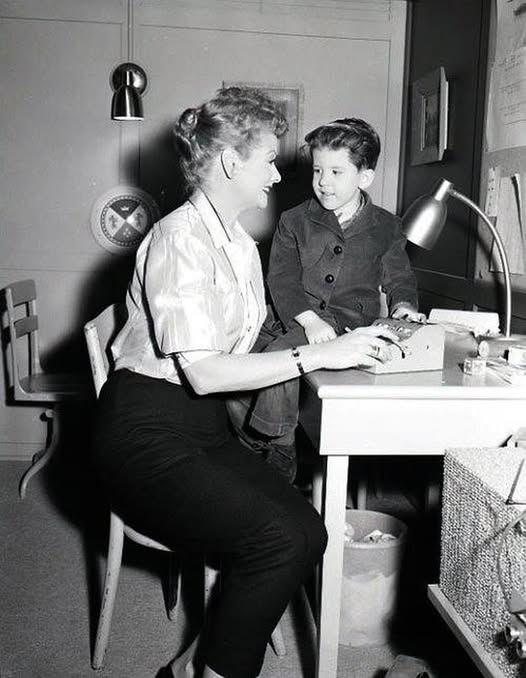
For decades, the name “Little Ricky” has brought a nostalgic smile to fans of I Love Lucy. Played by adorable child actor Richard Keith (who portrayed the mischievous, lovable son of Lucy and Ricky Ricardo), Little Ricky captured the hearts of millions. But as time passed, many fans began to wonder: whatever happened to the child star behind the iconic role?
Early Fame and Life on Set
Richard Keith stepped into the limelight at an age when most kids are still learning basic life skills. Portraying Little Ricky on one of television’s most beloved sitcoms, he quickly became a household name. Known for his expressive face, comedic timing, and ability to hold his own alongside Lucy (Lucille Ball) and Ricky (Desi Arnaz), Keith helped make the father-son dynamic both believable and heartwarming.
Life on set was a whirlwind. Balancing school, family life, and rigorous filming schedules was no small feat. Despite these challenges, Richard thrived under the guidance of seasoned actors like Lucille Ball, who reportedly treated him with care and professionalism. Fans remember the on-screen charm that made Little Ricky unforgettable, unaware of the hard work and discipline behind the scenes.
Growing Up in the Spotlight
As Richard Keith grew older, the challenges of transitioning from child star to adult actor became apparent. Many child actors struggle to maintain careers once they outgrow their iconic roles, and Keith was no exception. The pressure to evolve while remaining relevant in Hollywood can be immense, and fans often forget the personal sacrifices required to navigate this tricky landscape.
Keith continued to work in television, taking on roles in other popular shows of the era, but the shadow of Little Ricky remained ever-present. The role had cemented his legacy in TV history, yet it also made it difficult for audiences to see him in other contexts.
The Hiatus and Life Away from Hollywood
Eventually, Keith stepped back from acting. Reports suggest that he chose to focus on education, personal growth, and a more private life away from the constant scrutiny of Hollywood. Fans may be surprised to learn that he pursued interests outside of entertainment, cultivating skills and passions that had little to do with acting.
For those who followed Little Ricky’s early career, this hiatus sparked curiosity and speculation. Interviews and articles over the years hinted at a quieter life, with Keith occasionally reflecting on the impact of his early fame and the lessons learned on set.
Life After Little Ricky
Despite leaving the limelight, Keith’s influence endured. Many contemporary actors and TV enthusiasts cite I Love Lucy as a formative part of their appreciation for comedy and television. Little Ricky became an iconic figure, influencing the portrayal of children on sitcoms for decades to come.
Keith has reportedly enjoyed a fulfilling personal life, embracing family, hobbies, and private ventures. Though no longer a regular on-screen presence, his contribution to television history remains undeniable. Fans continue to celebrate his early work through reruns, retrospectives, and online tributes, keeping the legacy of Little Ricky alive.

Reflections on Fame and Childhood Stardom
The story of Little Ricky offers insight into the complexities of child stardom. While fans often remember the humor, innocence, and charm, the reality behind the scenes can be challenging. For Keith, fame came early and demanded maturity beyond his years. Yet, stepping back allowed him to reclaim a sense of normalcy and explore life outside the entertainment industry.
Child stars like Keith remind us of the duality of early fame: the joy and excitement of being part of something iconic, juxtaposed with the pressures, expectations, and limitations that can accompany growing up in the public eye.
The Lasting Legacy of Little Ricky
Little Ricky is more than just a character; he is a symbol of the golden age of television, a bridge between comedic innovation and family-centered storytelling. His presence on I Love Lucy helped shape the way audiences perceive children in media, setting standards for humor, relatability, and on-screen charisma.
Even decades later, the character continues to resonate with new generations, proving the timelessness of Richard Keith’s performance. While the actor himself has largely stayed out of the public eye, fans’ fascination with Little Ricky endures, demonstrating the lasting cultural impact of both the character and the show.
Why Fans Still Care
Fans’ curiosity about “Whatever Happened to Little Ricky?” isn’t just about nostalgia—it’s about understanding the person behind the character. Questions about how he navigated early fame, what choices he made afterward, and how he reflects on that time in his life create a connection that transcends decades.
In exploring Keith’s journey, fans are reminded that behind every iconic character is a real person, balancing personal growth with public expectations. His story resonates not just as a historical footnote, but as a testament to resilience, adaptability, and the lasting power of early creative work.
Conclusion
The legacy of Little Ricky is secure: a beloved child star whose charm and comedic talent left an indelible mark on television history. Richard Keith’s journey, from on-set wonder to private citizen, offers a fascinating glimpse into life behind the cameras of one of TV’s most famous families. While fans may never know every detail of his post-Little Ricky life, one thing is clear: the joy, laughter, and cultural significance he brought to audiences remain timeless.
For those who grew up watching I Love Lucy, Little Ricky will always be more than a character—he is a symbol of television magic, childhood innocence, and the enduring charm of a bygone era. The story of what happened to the child star reminds us that life moves forward, but legends like Little Ricky live on, forever etched in the hearts of viewers.
